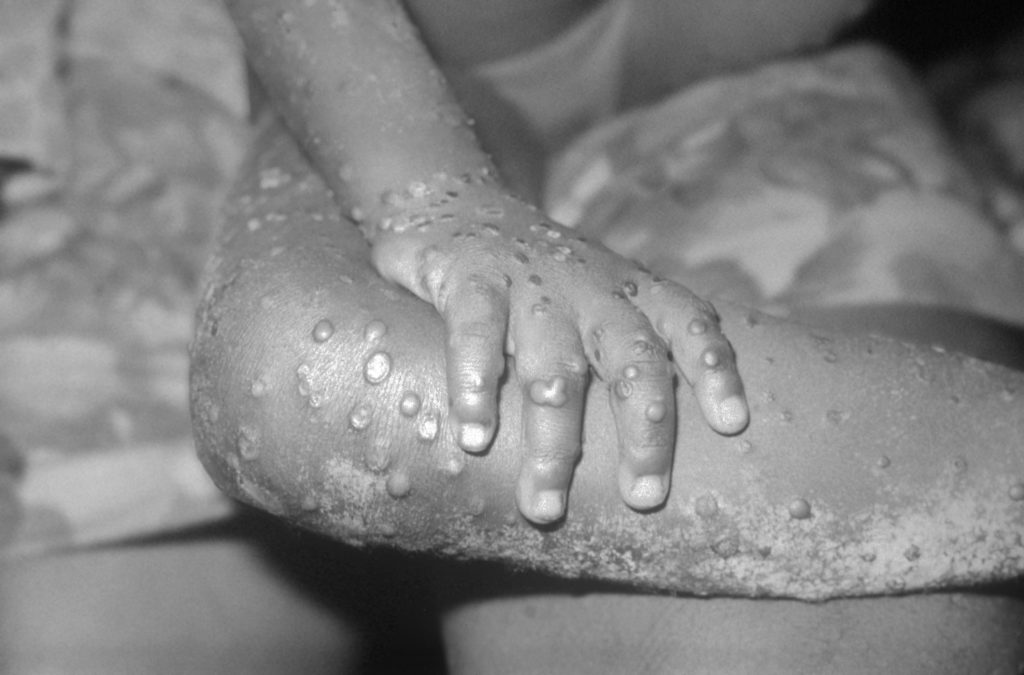
**UPDATE as of 5/23/22**:
President Joe Biden said Monday that he didn’t believe quarantines to prevent the spread of monkeypox in the U.S. would be necessary.
RELATED: Biden Administration Declares Monkeypox a Public Health Emergency
He said the U.S. has enough vaccine doses available to stop any serious outbreaks and to “deal with the likelihood of the problem,” according to The Washington Post.
“I just don’t think it rises to the level of the kind of concern that existed with COVID-19, and the smallpox vaccine works for it,” Biden said during a news conference in Japan.
The World Health Organization has identified monkeypox cases in at least a dozen countries where the disease isn’t typically considered endemic. Generally found in Central and West Africa, the illness has been reported in several European countries, as well as the U.S., Canada, and Australia.
—-Original Article—
The Centers for Disease Control and Prevention is monitoring more than 200 people across the country who have potentially been exposed to Monkeypox.
Andrea McCollum, Epidemiologist at the CDC, said that at least one person from Ohio was being monitored for the disease after sharing a flight with someone from Texas who was diagnosed. That person has not show symptoms, according to the Ohio Department of Health. If you look at the history of the disease, it’s only been seen in Cameroom, Central African Republic, Ivory Coast, Democratic Republic of Congo, Israel, Liberia, Nigeria, and other countries, but never in the United States.
Now, the Colorado Department of Public Health and Environment confirmed that the infected people appeared healthy with no symptoms of infection.
Travelers are being monitored daily by public health through July 30, which is the end of the monkeypox incubation period, CDPHE said.
The news comes after a Texas man was first diagnosed with the disease in mid-July after he returned to the U.S. from travel in Lagos, Nigeria.
What is Monkeypox?
Monkeypox is a rare disease that is caused by infection with monkeypox virus. Monkeypox virus belongs to the Orthopoxvirus genus in the family Poxviridae. The Orthopoxvirus genus also includes variola virus (the cause of smallpox), vaccinia virus (used in the smallpox vaccine), and cowpox virus.
Monkeypox was first discovered in 1958 when two outbreaks of a pox-like disease occurred in colonies of monkeys kept for research, hence the name ‘monkeypox.’ The first human case of monkeypox was recorded in 1970 in the Democratic Republic of Congo during a period of intensified effort to eliminate smallpox. Since then, monkeypox has been reported in humans in other central and western African countries. Human monkeypox infections have only been documented six times outside of Africa; in the United States in 2003 (47 cases), in both the United Kingdom (3 cases) and Israel (1 case) in 2018, in Singapore in 2019 (1 case) and in both the United Kingdom (3 cases) and the United States (1 case) in 2021.
RELATED: Everything You Need to Know About Monkeypox and the Vaccine
The natural reservoir of monkeypox remains unknown. However, African rodent species are suspected to play a role in transmission.
There are two distinct genetic groups (clades) of monkeypox virus—Central African and West African. Human infections with the Central African monkeypox virus clade are typically more severe compared to those with the West African virus clade and have a higher mortality. Person-to-person spread is well-documented for Central African monkeypox virus and limited with West African monkeypox.
Monkeypox Symptoms
The CDC says these are the monkeypox symptoms to look out for:
The illness begins with:
-
- Fever
- Headache
- Muscle aches…








